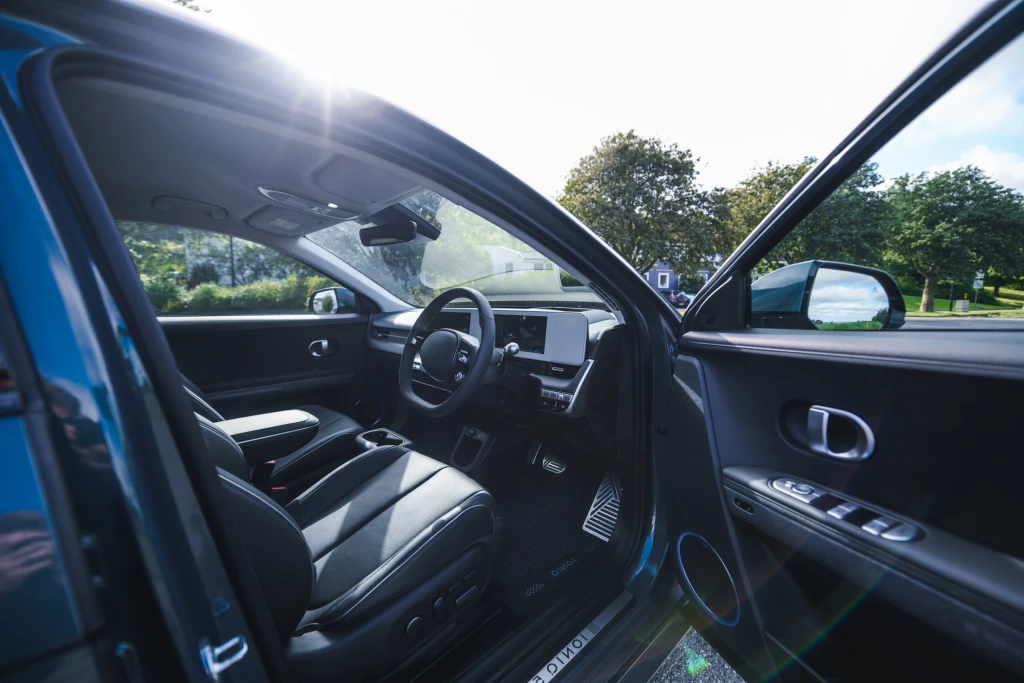Electric cars and hybrid cars are two of the most popular types of cars on the road today. With more people becoming environmentally conscious, these cars have become increasingly popular for their fuel efficiency and low emissions. But what exactly is the difference between the two?
The difference between an electric car and a hybrid car is that an electric car runs on electricity that has been stored in its batteries, while a hybrid car runs on a combination of an electric motor and a more traditional petrol engine.
If you’re interested in getting a new business vehicle, it’s important to weigh all options fairly. This guide aims to answer this by explaining what hybrid and electric cars are, as well as their pros and cons.
What is an electric car?
At their core, fully electric vehicles are cars that replace a petrol or diesel engine with an electric, battery-powered motor.
These motors can be charged like batteries by plugging them into an electrical outlet or a charging station. Electric vehicles typically have a range of up to 400 kilometers and beyond - but this depends on the size of the full battery electric vehicles are using and how much energy they use while driving.
Electric car pros
Electric cars tend to be quieter than traditional petrol and diesel cars due to their lack of an internal combustion engine. The eco-friendly nature of electric power vehicles also means that they require less fuel and have lower long-term running costs than other types of cars while running on reduced carbon emissions.
Electric car cons
Electric vehicles may be more expensive upfront than hybrid cars due to the technology in their batteries and electric motors. They can also take a while to charge and may not be suitable for long trips due to only having a limited range of distance they can cover before requiring another charge.

What is a hybrid car?
In contrast to an electric vehicle, hybrid cars (often known as plug-in hybrids) use both fuel tanks of petrol and a lithium-ion battery to power their engines. A hybrid vehicle has two different sources of energy: an internal traditional combustion engine and an electric motor.
These cars typically run on electricity until the battery is low or the driver accelerates quickly, at which point the petrol engine kicks in to provide additional power. Most hybrid cars can run on battery-only mode for short distances (up to 10-20 miles) before recharging or switching back to fuel-powered mode.
Hybrid car pros
The main benefit of plug-in hybrid vehicles is that they are more fuel-efficient than traditional petrol-powered vehicles. This means you will save money on fuel costs, as hybrid cars generally get better mileage per gallon than their petrol-powered counterparts.
Hybrid cars do have a cheaper initial cost than electric cars, which makes them easier to invest in. Additionally, hybrid electric vehicles emit fewer emissions, which helps reduce air pollution and contributes to a cleaner environment.
Hybrid car cons
Hybrid vehicles still tend to be more expensive than petrol-powered cars due to the additional technology required to power them. Furthermore, hybrid batteries can be costly to replace when necessary. Additionally, hybrid cars do not have the same range or power capabilities as electric cars.
Hybrid vs electric: Which car should you choose?
Choosing between fully electric and plug-in hybrid electric vehicles really depends on a number of factors, such as your specific budget and needs. If you have a larger budget, an electric car may be the best choice for you.
Electric cars tend to have better performance than hybrid cars, as well as higher range capability, meaning you can travel longer distances before needing to refuel or recharge. Furthermore, they are more efficient than hybrid cars since they rely solely on electricity for power.
If you have a smaller budget but still want to reduce your carbon footprint and emissions, then hybrid cars might be the way to go. Hybrid cars cost less than electric ones, so if cost is a major factor in your decision-making process, then hybrid cars are usually the more affordable option.
Get your next car through a novated lease with easi
The comparison of hybrid vs electric cars is a long-discussed topic that varies depending on each individual’s situation. Luckily, we’re here to help.
The team at Easi has over 20 years of experience in the industry of car leasing. This means that we can apply our knowledge to assist you with getting an electric vehicle novated lease that’s right for you. Our wide range of vehicles come under flexible contract terms and cover many different body types.
To find out more about how Easi can assist with your novated leasing or business car leasing needs, contact one of our staff today.










